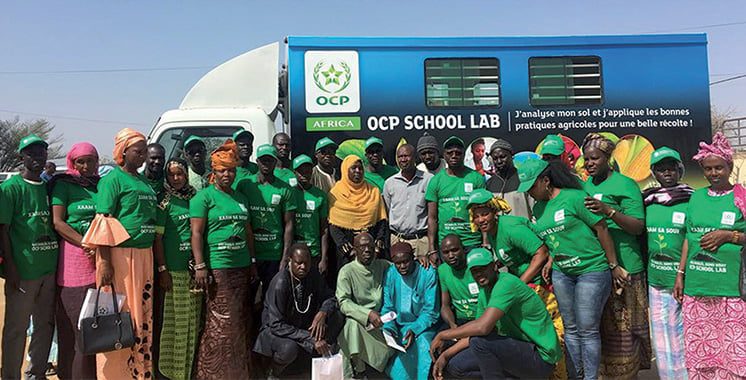The CEO of the OCP Group, Mostafa Terrab, presented, on Wednesday in Rabat, the Moroccan vision of an Africa that is set to become a solution for global food security.
Speaking at a meeting on “Prospects for Franco-Moroccan cooperation for a transition to sustainable agricultural and food systems in Africa,” organized as part of the state visit to Morocco by the President of the French Republic, Emmanuel Macron, Mr. Terrab emphasized the efforts made to promote a targeted use of agricultural nutrients.
He also highlighted the importance of continuing to develop solutions specifically tailored to each type of crop and soil, reminding that the low application of fertilizers in Africa still limits agricultural yield potential on the continent today.
However, he argued, the OCP Group’s experience in Africa has demonstrated that optimized soil nutrition, in synergy with responsible agricultural practices, not only increases yields but also decarbonizes agriculture by contributing to carbon sequestration in soils.
These agricultural practices, integrating appropriate nutrition for soils and plants, have the potential to create a virtuous cycle between two Sustainable Development Goals (SDG 2 “zero hunger” and SDG 13 “climate action”) that are traditionally seen in opposition, he continued, assuring that healthy soils enable the achievement of these goals.
He noted that this approach, made possible by recent technological advancements such as spectroscopy and neural networks, paves the way for a virtuous cycle combining agricultural productivity and environmental resilience.
In this regard, Mr. Terrab emphasized that Franco-Moroccan cooperation in this field opens promising prospects by leveraging tailored solutions and the latest innovations for the benefit of African farmers.
Discussing the achievements of the OCP Group in terms of massive investments in fertilizer production capacities, considered as new activities, he specified that production capacity has risen to about 15 million tons, making Morocco the world’s leading producer in phosphate fertilizer capacities.
He also pointed out the limited amount of arable land per person globally, which is likely to decrease, stating that the only way to address this situation is to increase yields per hectare through the expansion of arable land, intensification of crops, and yield increases.
Reminding that these fertilizers essentially consist of three nutrients, namely nitrogen, potassium, and phosphorus, Mr. Terrab insisted on Africa’s role as a player in a solution to global food security.
This meeting, which brought together experts and stakeholders from various backgrounds in the agricultural ecosystem, was also an opportunity to inquire about the challenges and opportunities related to food security, particularly in Africa, with the aim of facilitating a constructive exchange on initiatives and partnerships for a resilient and sustainable agricultural future.


